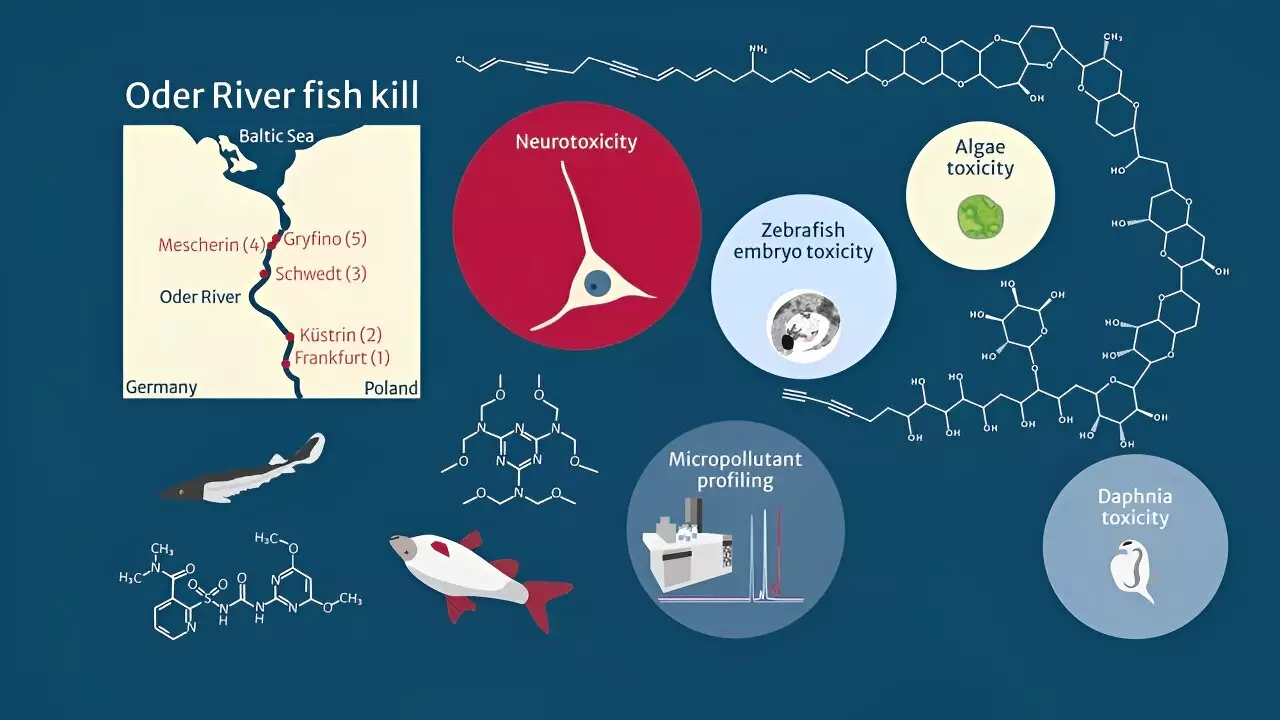The Oder River, located on the German-Polish border, experienced a devastating environmental disaster in early August 2022. The river was littered with dead fish, mussels, and snails, leading to a significant loss of aquatic life in the region. An interdisciplinary team of scientists led by the Helmholtz Center for Environmental Research (UFZ) conducted a study to determine the cause of this environmental crisis.
The research team collected water samples from different locations along the Oder River and analyzed them to identify the presence of organic micropollutants. Over 120 different pollutants were detected, including substances such as flame retardants, polymer additives, and corrosion inhibitors. While most of these pollutants were discharged from sewage treatment plants, some, like 2,4-dichlorophenol, were traced back to industrial sources, and pesticides were found to originate from agricultural runoff.
The study conducted by the researchers revealed that the combination of algal toxins and organic micropollutants had a severe impact on aquatic organisms in the Oder River. The concentration of these pollutants, when combined, exceeded safe levels, posing a significant risk to fish, mussels, snails, and other aquatic life. Laboratory experiments conducted on algae, water fleas, and zebrafish embryos confirmed the neurotoxic effects of these chemical cocktails.
The researchers used a risk quotient (RQ) to assess the extent of stress caused by the pollutants on aquatic organisms. The calculated mixture risk quotients (RQmix) at the sampling sites exceeded the threshold value of 1, indicating a potential risk to aquatic life. Neurotoxicity tests conducted on nerve cells exposed to water extracts confirmed the harmful effects of organic micropollutants and algal toxins on aquatic organisms.
Impact on Ecosystem
The presence of prymnesins in the Oder River, combined with organic micropollutants, posed a significant threat to the entire ecosystem. The study found that prymnesins had a dominant neurotoxic effect, while micropollutants also contributed to the overall toxicity levels. The researchers emphasized that the stress caused by these pollutants could have far-reaching consequences on the biodiversity and health of the Oder River ecosystem.
The findings of the study conducted by the UFZ and its research partners highlighted the alarming impact of organic micropollutants on aquatic organisms in the Oder River. The presence of these pollutants, in combination with algal toxins, has created a toxic cocktail that threatens the survival of fish, mussels, and snails in the region. Urgent measures are needed to address the sources of pollution and prevent further damage to the fragile aquatic ecosystem of the Oder River.


Leave a Reply